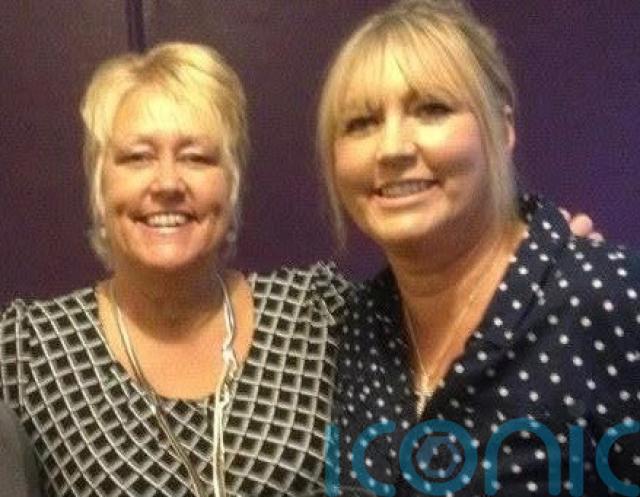
A woman who suffered fertility problems after being exposed to a drug linked to a rare cancer while in her mother’s womb has described events as a “cover-up” and claimed those affected were “poisoned”.
Michelle Taylor, 63, said women who were given diethylstilbestrol (DES) were “like lambs to the slaughter” and their maternal instincts were “exploited”.
The drug, a synthetic form of the female hormone oestrogen, is thought to have been prescribed to around 300,000 women between the 1940s and the late 1970s to prevent miscarriages and to suppress breast milk production.
Mrs Taylor’s mother Sylvia Bennett was prescribed the drug during two of her pregnancies.
She had previously had two miscarriages, as well as a full-term stillbirth.
DES was linked to a rare vaginal cancer called clear-cell adenocarcinoma in the 1970s, which Mrs Taylor was monitored for for decades.
But the teacher and artist from Worcester told the PA news agency she was never told that the drug could damage the reproductive system.
She is also concerned that the affects of DES have been passed to her daughter, as well as her two nieces.
It comes as campaigners call for a public inquiry into events.
When Mrs Bennett died of bowel cancer at 55, Mrs Taylor – who was 15 at the time – and her sister Christine Holt, then 21, were called to Birmingham Women’s Hospital.
Mrs Taylor told PA: “We were told they had found the children may be affected by a rare cancer, clear-cell adenocarcinoma. My sister was examined and she was showing early signs.”

Mrs Taylor said she was so traumatised by the process that she passed out and had to be screened under anaesthetic a few weeks later.
“I was already traumatised from my mum’s death,” she said. “To be honest, that never left me.”
While her sister was treated for the rare vaginal cancer, Mrs Taylor was monitored. She attended the clinic from the age of 15 until she was 43.
At 23, a newly married Mrs Taylor had a near-fatal ectopic pregnancy, followed by another four months later.
According to Mrs Taylor, these were caused by DES exposure, as her fallopian tubes were congenitally narrowed.
She said doctors told her husband they would never have children.
“I was never told, ever, that the drug could damage the reproductive system,” Mrs Taylor said.
“We were never told our wombs were misshapen or there were abnormalities caused by the drug.
“All they concentrated on was clear-cell adenocarcinoma.”
Between the ages of 23 and 37, Mrs Taylor and her husband went through six rounds of IVF, which at the time was in its infancy. They finally had a daughter, Issy, now 25.
It was not until 1997, when the sisters were part of a group called DES Action UK, that literature on DES stated to emerge from the US.
Mrs Taylor described this as a “revelation”, adding: “My sister also suffered an ectopic pregnancy and a terrible birth with her first child because her womb was misshapen.”
Mrs Taylor, her daughter, and Mrs Holt are now part of DES Justice UK (DJUK), which includes more than 300 people calling for answers from the Government, along with a redress scheme and a screening programme for those exposed to DES.
She told PA that stories from other members had moved her to tears.
“Women who are infertile after being exposed to this drug, their human right to have a child taken away,” she said.
“One had a hysterectomy at nine-years-old after being diagnosed with rare cancer.
“They’ve poisoned us. We’ve fought this for so long, there’s no way we could have done this in the ’90s.
“Other countries like the USA and the Netherlands have compensated the women and have screening programmes. We’ve done nothing. Because it’s a cover-up.”
There are now concerns the abnormalities may have passed to the next generation.
Mrs Taylor’s daughter – who is a spokesperson for DJUK – has had abnormal cervical smears, while one niece has a misshapen womb and has been treated for abnormal cells on her cervix.
Another niece, 46, has been diagnosed with breast cancer – which has been linked to DES exposure – and has also been treated for abnormal cervical cells.
Mrs Taylor’s two nieces are also members of the wider DJUK group.
Mrs Taylor said the “fight to get justice” had been lonely, but being a part of DJUK was “amazing”.
She said: “It’s mind-blowing – how many women out there have suffered things like infertility, rare cancers? And they wouldn’t have known that probably their mother or grandmother took the drug.
“These women were like lambs to the slaughter. They preyed on their maternal instincts. They were exploited.
“They were vulnerable, all they wanted was to give birth to a healthy child. Many women had miscarriages and were told ‘take this and your baby will be fine’. They were used as guinea pigs for profit.”
Subscribe or register today to discover more from DonegalLive.ie
Buy the e-paper of the Donegal Democrat, Donegal People's Press, Donegal Post and Inish Times here for instant access to Donegal's premier news titles.
Keep up with the latest news from Donegal with our daily newsletter featuring the most important stories of the day delivered to your inbox every evening at 5pm.